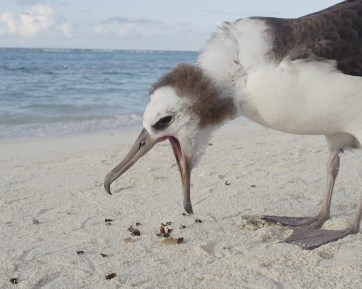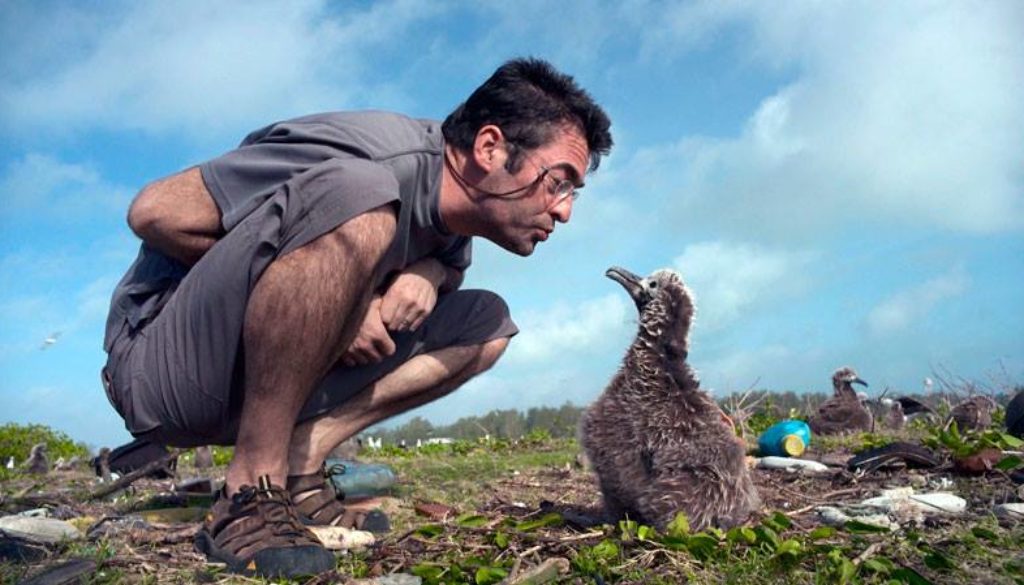Introducing Albatross
The below post is an adapted version of the introduction Giselle gave to the Australian Premiere screening of Albatross in Melbourne on the 9th of March 2018
 by Giselle Wilkinson
by Giselle Wilkinson
Founder Sustainable Living Foundation
Chris Jordan came to the attention of the international art world with his large format photographs beautifully depicting statistics that boggle the mind. He supports our minds to comprehend such horrifying enormity. Connecting with our every-day lives, going beyond rational arguments and engaging our emotions he confronts our motivations and fears. We all live in our mass consumption, he says, asleep in an “invisible cloak of horror” and our incomprehension contributes to our ‘disconnect’.
In 2014 Chris Jordan headlined the Sustainable Living Festival. During that visit to Melbourne I interviewed him at the Murundaka eco-living community. Eighteen months later, travelling in the United States, I stayed with Chris and his family for three weeks in Seattle and on Whidbey Island.
Chris loves the concept of resonance. His studio is a sanctuary of creativity. In it he has a great collection of bells, Tibetan singing bowls and 3 huge, almost floor to ceiling, temple gongs. Chris loves the metaphor of these bells and gongs that ring out into the world just as each one of us is a resonator.
He invited me to strike a gong one day. I experienced the waves of vibration audibly and physically and perhaps cosmically as they emanated from the little studio in Seattle into the atmosphere of our world, taking part of me with them. Chris believes the transformation space, “the place where” he says, “the key turns in the lock, is not somewhere out there but inside each one of us.” He believes as each one of us begins to heal our own ‘selves’ we resonate at a different frequency out into the world. He loves “the idea that we heal the world as we heal our self”.
This movie is another form of this. It wraps us in love even as we share his deep experience with the Laysan Albatross of Midway Island.
 Chris wanted to help us face the extent of ocean pollution. He describes its spread over thousands of miles of ocean, swirling in water columns going down nearly 200 metres and then swirling up again. He says it is impossible to photograph the Pacific Garbage Patch. He had to find a way to see it. So he went to the remote Pacific island of Midway and looked into the stomachs of baby albatross.
Chris wanted to help us face the extent of ocean pollution. He describes its spread over thousands of miles of ocean, swirling in water columns going down nearly 200 metres and then swirling up again. He says it is impossible to photograph the Pacific Garbage Patch. He had to find a way to see it. So he went to the remote Pacific island of Midway and looked into the stomachs of baby albatross.
Through a series of immersive journeys all the way to Midway Chris deepened his understanding of the meaning and ramifications of the terrible phenomenon occurring there, as parent birds unwittingly kill their offspring by feeding them the plastic they fish from the ocean. Chris explains how he experiences this. How “the tragedy of the birds is wrapped in the envelope of incredible beauty.” True in the wider context too where “Horrible problems are still wrapped in the beauty of this magnificent world.”
In the trailer of Albatross Chris speaks directly to us all.
“Do we have the courage to feel deeply enough that it transforms us and our future?
To look through the eye of beauty
Across an ocean of grief and beyond?”
He sees the iconic plastic pollution tellingly located in the vast oceans far from any land-masses. He takes us to a remote cluster of islands that is the furthest away from civilisation as possible, Midway Atoll. More than 3,200 kilometers from the nearest continent in the Pacific Ocean – the Mother, what he finds provides a visceral mirror to our sterility and spiritual bankruptcy.
Midway Island. Even its name is poetically powerful. “Caught between the violence and mistakes of our past and the unwritten potential of our future–between horror and beauty–they’re around us every moment, we’re surrounded by it right now. We’re midway, midway.” This was where one of the most decisive battles took place during the 2nd world war, the turning point of a war between east and west, the fulcrum point where that war turned. Chris says, “The depth of the symbolism is overwhelming.”
Midway is “one of the most beautiful places to encounter wildlife. One million albatrosses, for four million years they never had a predator. They have no fear response.”
He describes what it is like to be surrounded by hundreds of thousands of beautiful, extremely curious birds and explores what he has leaned about curiosity. “Curiosity might be our deepest of all instincts maybe deeper than any feeling, deeper than love, deeper than anything. The desire to encounter the other. A creature from another species bridging the fear and reaching out with curiosity.”
Albatrosses are not predators. They don’t have the spiritual intensity of the eagle or the wolf, both species that have to deal with the reality of killing things. These birds are sublimely beautiful and graceful.
… and then he speaks about grief. As he takes us to understand grief as a portal to transformative change, his central theme is one of love and of working together on behalf of all beings.
We avoid ‘sadness’ which is seen as taking us away from happiness. The fear of the experience of sadness or of anger that must come from the facing of actual reality, causes disconnect in another guise that entails shoving it somewhere and not being it, not allowing it or enabling it. What is lost is the connection to Mother Nature and the world that we live in.
Grief holds a key. “’Across an ocean of grief’ .. Why would we want to cross an ocean of grief,” Chris asks, “and face the horror of these beautiful birds dying because they are filled with plastic? Why subject ourselves? It’s not an exercise in pain or self-punishment. That’s not why I want to face the horrors of the world. I learned something about grief on Midway Island that I want to share with you.”
Through Albatross Chris supports us. We see through his lens. Slowing down we feel our hearts open to let albatrosses deepen our trust and teach us to reconnect.
Our culture’s confusion about happiness is reflected in the urge to avoid grief under the mistaken thinking that grief is something that gets in the way of being ‘happy’; it is a ‘bad’ feeling to be avoided, suppressed or hurried; something to be feared. Grief sounds like depression and sadness and we don’t want to be sad and depressed. We recognise that there’s so much in our world to grieve for. Chris says “we’re afraid we’ll be engulfed by sadness and fall down into a hellhole of despair and, once started, not be able to stop crying” but he believes that “in turning away from grief, especially in terms of what is happening to our world, we miss what may be the most powerful opportunity of all, to reconnect with the deepest part of our self.”
His experiences on Midway Island and his work with profoundly wise teachers like Joanna Macy and his Buddhist friends in Seattle supported him to learn “that when we grieve something we’ve lost whether it’s a beloved or a species or the loss of quality of life that we know is being created for the people who follow us, for the species who follow us; when we honour our pain and allow ourselves to feel it–globally–for what’s happened to our world, then we connect with that thing.”
“Grief is not the same as sadness, it’s not the same as depression. Grief is the same as love. There’s no distinction between grief and love. It’s like the opposite side of the mirror. Grief is a felt experience of love for what we’re losing, for what we’ve lost.”
“So when we step through the doorway of grief we don’t end up going into sadness and despair and depression and anxiety and hopelessness. Grief is a portal back to the infinite ocean of love that we all contain for the miracle of our world and for the incomprehensibly beautiful gift of life that each one of us has been given.”
Paradoxically going deeper into grief unlocks joy. You can’t just talk about grief–you have to actually deliver. Experts in the subject create sacred space in community and do grieving rituals. Ululating is a Middle Eastern community grieving process. It’s not something that can be done once and you’re through a portal and enlightened. It’s ongoing. You can go deeper and deeper into it and the further we can go into grief it enlarges the capacity of the heart to feel love and joy. It’s like that is where our joy is locked. And if we want to find our way back to joy, strangely enough it’s walking through the doorway of grief.
Chris Jordan focuses our attention on the incredible gains to be made rather than the losses. He shares his dream. “If we were only able to articulate what liberation feels like, the freedom, the lack of fear, the ability to stand up tall; the ability to be naïve / pure and just be ok with that; to still be the idealist and to step up and actually activate these ideals to make them become real. That is attractive,” he says, “That is something that people would want to know more about.”
He says they’re curious now. “Show me how,” they say.
Perhaps there’s something in that. Perhaps there’s some more work that can be done in that space – all of us – as a way of helping. Hold people’s hands to take that leap.
Albatross closed the festival in Melbourne, and will tour to Sydney, Brisbane, Perth and Adelaide

